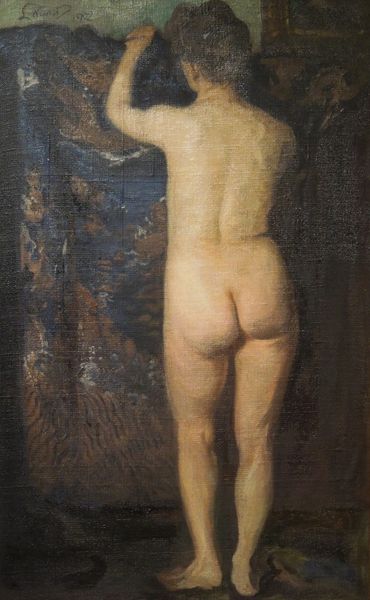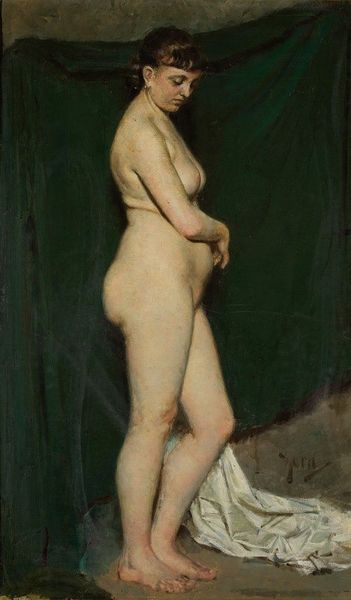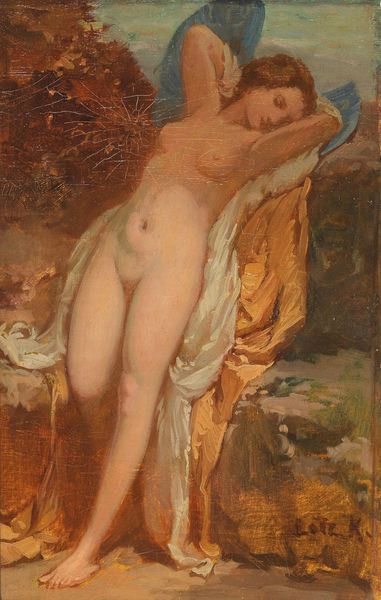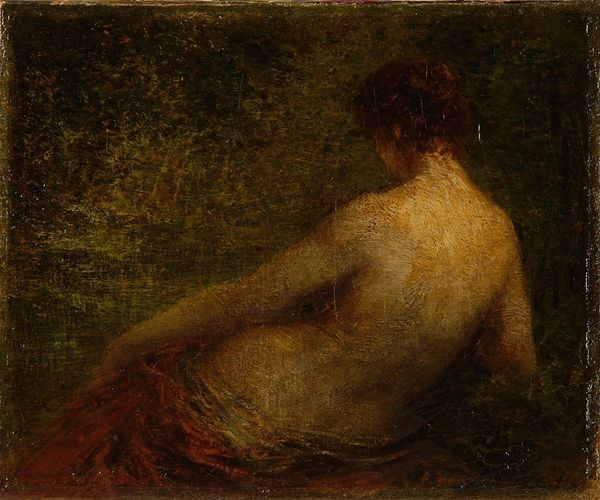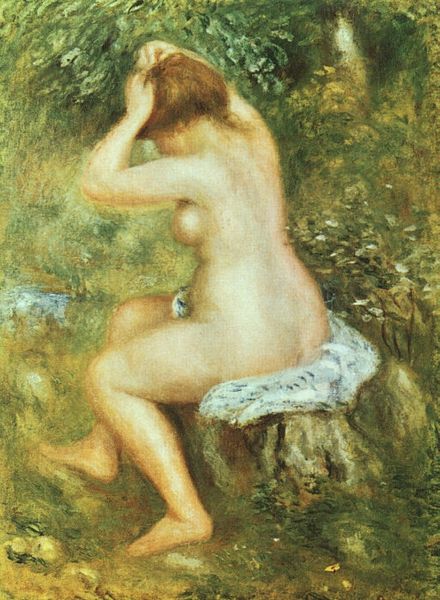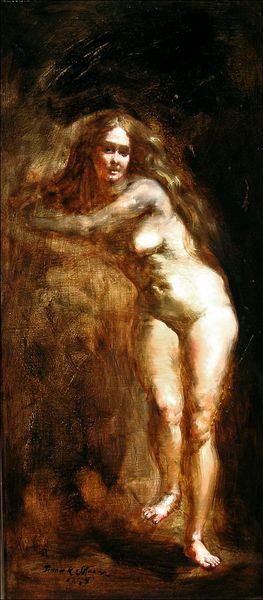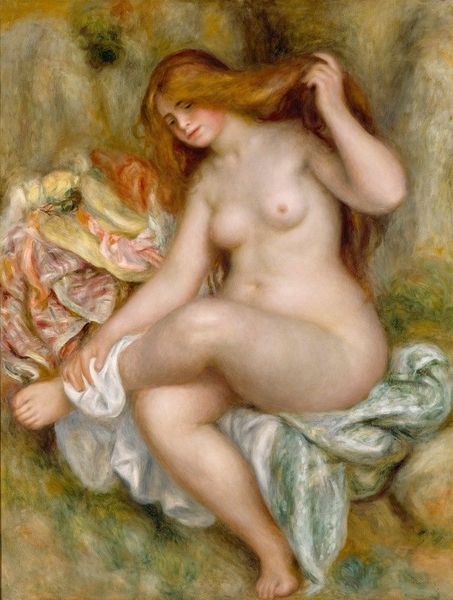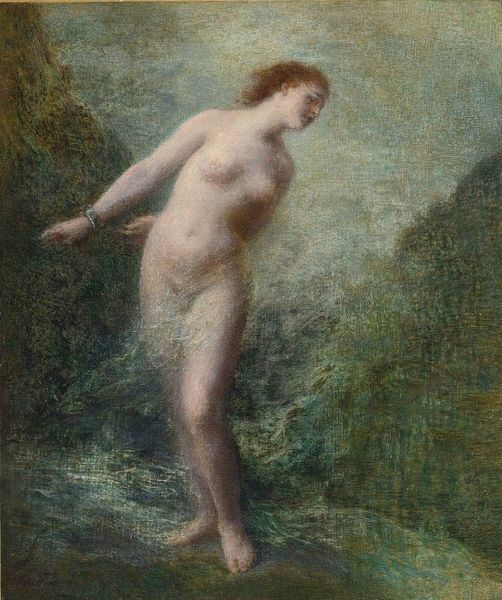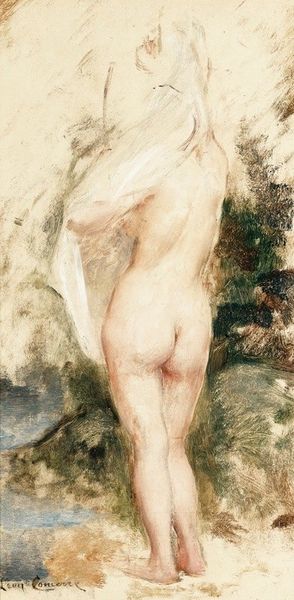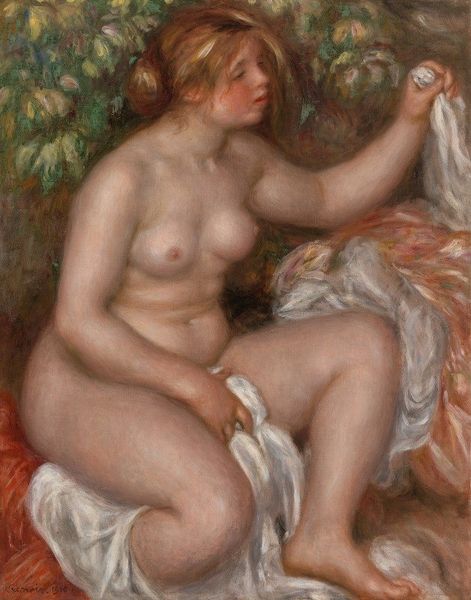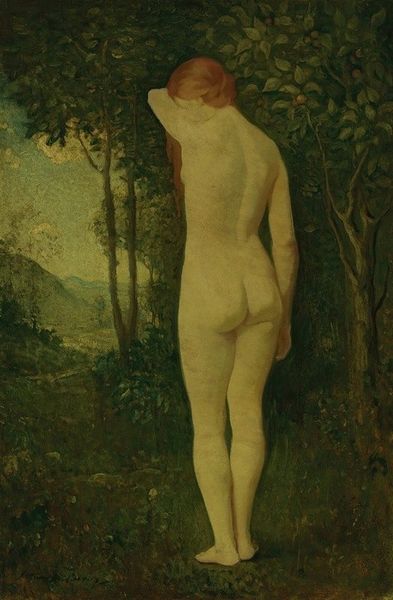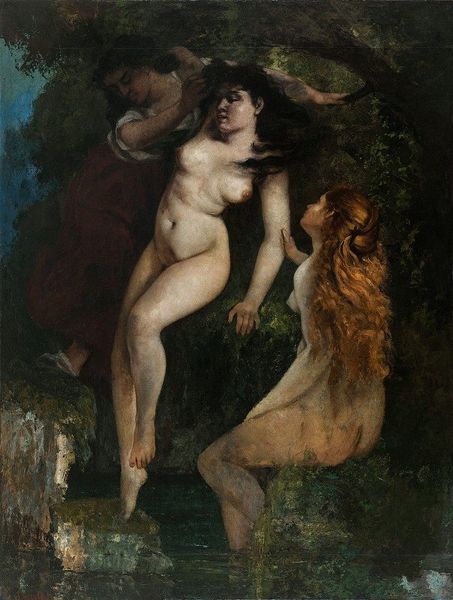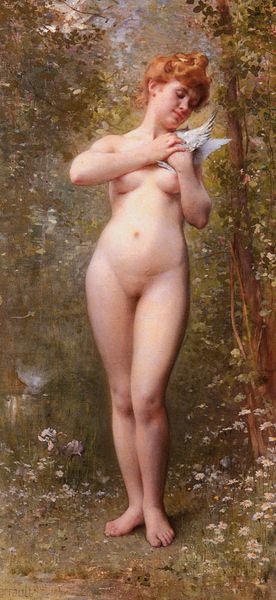
painting, oil-paint
portrait
painting
oil-paint
charcoal drawing
figuration
oil painting
human
history-painting
academic-art
nude
Dimensions: 110 x 44 cm
Copyright: Public domain
Editor: We’re now looking at Gustave Moreau’s "Copy of Raphael's Cherub," created in 1858 using oil paint. It’s a study, really. The figure feels monumental despite the probable modest scale. What stands out to you about its visual presence? Curator: The figure’s placement, almost pressed against the picture plane, amplifies its presence, wouldn't you agree? Note the careful construction: the way Moreau has built form through layering of tones rather than sharp lines. It gives the cherub a certain weight, but also an ethereal quality. It’s not merely mimetic; it transcends simple representation. Editor: Yes, I see that now. It almost feels sculptural, but also strangely undefined, as if emerging from a mist. What would you say is the role of that contrast, that tension? Curator: Exactly. Consider the composition: the cherub’s gaze directed upwards and the contrapposto pose suggest a dynamic potential. Moreau has captured an essential, idealized form. Also, contemplate the artist's subtle handling of light, revealing and concealing, directing the eye to principal focal points. Editor: That’s helpful. It's interesting how Moreau’s technical approach elevates this study. Curator: Indeed. Focusing on these formal elements—the handling of light, form, and composition— allows us a richer engagement with the piece itself, don’t you think? Editor: I absolutely agree. Focusing on the elements, and considering the choices Moreau made with his tones and brushwork gives me a deeper appreciation for its artistic value.
Comments
No comments
Be the first to comment and join the conversation on the ultimate creative platform.
